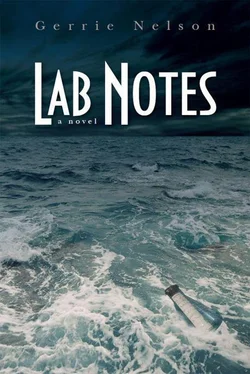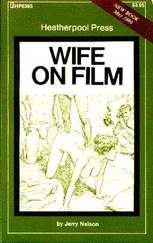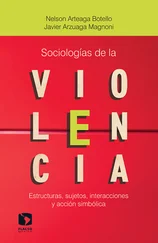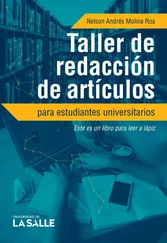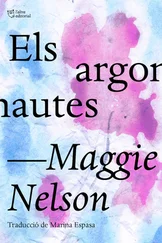Overwhelmed, Diane flopped on her back across her canopied bed and looked through her toes at the Caribbean. To think she had resisted coming to this private paradise.
A knock at the door startled her, and Diane jumped up to answer. Two women holding stacks of peach colored towels and a crisp white bathrobe smiled and pointed toward the bathroom questioningly.
“Sure, come in, come in,” Diane said with a sweep of her arm. They went giggling through the bedroom, into the bathroom.
Diane followed them as far as the bedroom and began unpacking her bag. She unrolled a silk ankle-length wraparound skirt with a muted leafy design and a matching teal sleeveless top and shook them out. The carefully chosen blouse with its mandarin collar (she had decided against the strapless top) seemed like appropriate dinner attire, especially with the addition of the dignitaries.
From the bathroom, Diane could hear the housekeepers chatting in Spanish as they worked. She suddenly realized they were talking about her. Of course they had no way of knowing she was fluent in their language.
“She is the doctor from Texas. Her husband disappeared up there like Jaime,” one of the women said.
“Texas is not a lucky place,” the other replied.
Diane descended the stairs into the atrium to find a semicircle of people assembled in front of Gabriel Carrera. Gabriel immediately broke away to greet her. He gave her a piercing look as he shook her hand. Then he led her to the group and made the introductions.
They were the Interior Minister and the American Ambassador to Colombia and their wives. The Colombian Interior Minister greeted Diane like an old friend. She had met with him several months before when they signed the contract for jungle plant harvesting.
Gabriel led the group down a hallway and through a rear door where they found Carlos standing by two open-topped vehicles parked beside an ornate fountain. The Minister and his wife joined Carlos and his driver in one of the jeeps.
Gabriel insisted on chauffeuring his own four-wheel drive. He helped the Ambassador and his wife into the back and seated Diane in the front beside him.
As they set out across the island, Diane closed her eyes, lifted her face to the sun and let the wind have its way with her hair. She opened her eyes to view the sights up ahead that included wind-sculpted boulders like the ones on Aruba. Turning to ask Gabriel a question, she found him staring at her. She waited for him to speak. But he turned away.
At their first stop, the water desalination plant, Gabriel proudly explained how the machinery turned sea water to drinking, cooking and bathing water. Then they drove to the northeast edge of the island where they saw a wind farm that harnessed the trade winds to provide electricity.
Next they passed near Gabriel’s house on the eastern edge of the island. It was a one-story, sprawling stucco house with a red tiled roof. Double-doors all around opened it up to sea breezes. With its separate quarters for household staff and body guard, it was twice the size of Olimpia’s house and much more dramatic in its setting. But compared to Carlos’s mansion, it was understated.
Gabriel pointed out the hotels on the “big island” that could be seen from this end of Carrera Island. Then they circled around to the south and stopped at a cliff side gazebo where tables had been set for lunch.
After a five-course meal, no one complained when Carlos announced it was siesta time.
Diane awoke refreshed. She was surprised to see it was already six-thirty. Cocktails would be served at eight, dinner at nine. Carlos had told her to feel free to wander about the house when she awoke. She jumped up, splashed some water in her face and pulled on a sundress. She descended to the atrium. The house seemed deserted, the fountains providing the only sound. She examined the atrium garden’s exotic foliage finding it curious that pots of aloe barbadensis seemed to be everywhere.
She walked around the atrium’s perimeter that served as a hallway. One of the enormous sets of carved double doors stood ajar. Passing by, Diane heard a “hello” from within. She turned to see Carlos Carrera sitting at a massive desk.
He beckoned, “Please come in.”
Diane walked slowly into the study, awed by its museum-like ambience. Behind Carlos’s desk, paintings and parchment crowded the wall and spoke of Spanish conquistadors, land grants from kings, entitlement, revolution, power.
“Incredible,” Diane whispered.
Carlos glowed. “Are you interested in antiquities?”
“Yes. I have been enamored with all things Spanish since I was very young. I think it must be some genetic throwback.”
“So, you have Spanish blood?”
“I think so—from my Irish ancestors who married survivors of the Spanish Armada.”
Carlos smiled. “Ah yes, the black Irish. I have heard that tale.”
He stood up and motioned for Diane to follow as he walked toward the far wall, which held all manner of heraldry: Shields, swords and pistols bearing the family crest hung in splendiferous display. One set of dueling pistols with gold inlaid handles caught Diane’s attention. “They’re magnificent. Will they still fire?”
“They have been kept in working order for over two centuries.”
Visualizing her wall of treasured heirlooms at home (photos of family holidays when her parents were alive and framed samples of her grandmother’s crocheting), she smiled and said, “How wonderful it must be to know your ancestors participated in the exploration and settlement of the New World, New Granada. And you actually have some of the weapons they used to free it from the Crown.”
Carlos studied the wall for several seconds, then looked away and said, “Sometimes it is a terrible burden.” He gestured toward the door. “Come; let me show you the grand hall where we will be dining this evening.”
They walked along the echoing stone hallways. Are you enjoying your visit so far?” Carlos asked.
“Everything has been wonderful. Thank you for inviting me.”
Passing an enormous pot of aloe Diane said, “I couldn’t help but notice all the aloe vera around. Do you have a specific use for it?”
Carlos smiled. “One of our Indian tribes represented here on the island communicates with plants. They say the aloe’s exterior spines represent woes, while the interior gel represents healing. If you have ever used it on a burn, you know that to be true.
“When a tribe member detects that a person is heading for trouble, they try to offset it with aloe.” He laughed with exaggerated delight. “They have been surrounding me with the plant for years. They even hide it in my pockets.”
They walked in silence for a moment. Then Carlos said, “Raymond phoned. He seemed upset that you received an invitation and he did not. I explained that we had not kept it a secret from him. It was planned only yesterday. Sometimes these last minute dinners turn out best.”
“Does Raymond come here often?” She hoped Carlos didn’t think she was prying.
“Not so much anymore…” Carlos voice trailed off into reminiscence as though he had forgotten she was there. “Raymond and Gabriel were very close at military school as children. Then they expelled Raymond …” Carlos shook his head.
“Whatever for?”
“A hazing incident. Raymond chased down an underclassman and his pet rabbit, and somehow in the ensuing tussle, the rabbit was burned to death—just a boyhood prank that took a wrong turn.” He continued in Raymond’s defense, “Hazing was an honored tradition in those days.”
Just then, Carlos stopped at two castle-sized doors, pushed them open and stepped aside. Diane stood there, dumbstruck.
It wasn’t the heavily carved banquet table for twenty that grabbed her attention. Or the walls of windows opened to the sea. The three jeweled chandeliers that danced and sparkled in the breezes also escaped notice, as did the centuries old tapestries.
Читать дальше
